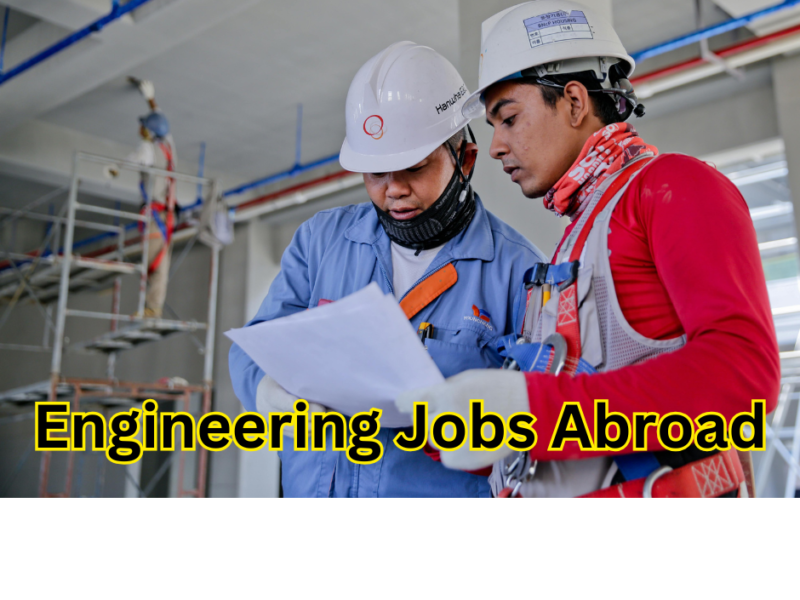Germany, Europe’s largest economy, is facing a serious workforce shortage. While highly skilled professionals have long been in demand, 2025 marks a new era where Germany immigration for low-skilled workers is not just possible, but actively encouraged.
With an aging population, rising demand in essential sectors like construction, cleaning, agriculture, caregiving, logistics, and hospitality, Germany now opens its doors wider than ever for foreign nationals who may not have formal education or experience but are ready to work.
What Is Germany Immigration for Low-Skilled Workers?
It is a legal pathway that allows foreign nationals to live and work in Germany without needing a university degree or professional work experience. Instead of high-tech or executive roles, it targets essential support roles in industries where Germany desperately needs help.
The initiative is backed by Germany’s Skilled Immigration Act (Fachkräfteeinwanderungsgesetz), recently updated to include certain low-skilled and semi-skilled roles—especially those with on-the-job training opportunities.
This means:
You don’t need a degree
No long job experience is required
You can still qualify for a work visa if you have a job offer in an eligible sector
In-Demand Low-Skilled Jobs in Germany (2025)
Germany’s current labor gaps are not only in tech or engineering—they are most severe in practical, hands-on roles. Below are some of the top job opportunities that low-skilled immigrant workers can apply for:
1. Warehouse Workers / Packers
-
Salary: €1,800 – €2,400/month
-
Industries: Amazon, DHL, logistics companies
-
Location: Berlin, Leipzig, Hamburg, and industrial hubs
2. Cleaners / Janitorial Staff
-
Salary: €1,600 – €2,100/month
-
Employers: Schools, hospitals, malls, and corporate offices
-
Bonus: Evening or night shifts often pay more
3. Construction Assistants
-
Salary: €2,000 – €2,700/month
-
Roles: Digging, lifting, transporting materials
-
Visa Sponsorship: Offered by large firms and subcontractors
4. Caregiving Assistants
-
Salary: €2,000 – €2,500/month
-
Places: Elderly homes, private care, rehabilitation centers
-
Requirement: Basic German (A2 level) and compassionate personality
5. Kitchen Helpers / Dishwashers
-
Salary: €1,700 – €2,200/month
-
Locations: Hotels, restaurants, airports
-
Perks: Free meals and accommodation in some jobs
6. Agriculture Workers (Seasonal or Full-time)
-
Salary: €1,600 – €2,000/month
-
Sectors: Fruit picking, vegetable farming, dairy
-
Season: Mostly between March and October
7. Delivery Assistants / Loaders
-
Salary: €2,000 – €2,800/month
-
Employers: Grocery chains, e-commerce warehouses
-
Condition: Physical fitness and time management
8. Care Assistants / Helpers (Pflegehelfer)
-
Job Description: Helping the elderly or disabled with mobility, hygiene, meals.
-
Employers: Nursing homes, care facilities, private homes.
-
Salary: €2,000 – €2,600/month
-
Requirement: A2 level German preferred; on-the-job training often available.
9. Supermarket Shelf Stackers / Stock Clerks
-
Job Description: Arranging stock on shelves, checking inventory.
-
Retailers: Lidl, Rewe, Aldi, Edeka.
-
Salary: €1,800 – €2,400/month
-
Advantage: Possible upward mobility to cashier or assistant manager roles.
10. Laundry Plant Workers
-
Job Description: Operating laundry machines, ironing, folding uniforms or linen.
-
Industries: Commercial laundry services for hotels/hospitals.
-
Salary: €1,600 – €2,100/month
-
Benefit: Mostly indoor, climate-controlled environments.
11. Delivery Riders & Assistants
-
Job Description: Last-mile food, parcel, or grocery delivery.
-
Companies: Flink, Gorillas, Lieferando, Amazon Logistics.
-
Salary: €2,000 – €2,800/month (tips may apply)
-
Note: Requires valid driving permit or willingness to train.
12. Recycling and Sanitation Workers
-
Job Description: Collecting waste, sorting recyclable materials.
-
Employer: Municipal services and waste management companies.
-
Salary: €1,900 – €2,600/month
-
Work Hours: Mostly early morning or night shifts.
13. Car Wash / Auto Cleaning Staff
-
Job Description: Washing interiors/exteriors, vacuuming, polishing.
-
Industries: Auto dealerships, fuel stations, rental services.
-
Salary: €1,600 – €2,000/month
-
No Skills Needed: Training is provided on first day.
14. Factory Line Operators (Trainee Level)
-
Job Description: Monitoring machines, packaging, basic equipment operation.
-
Sectors: Automotive, furniture, electronics.
-
Salary: €2,000 – €2,800/month
-
Growth Path: After 1–2 years, eligible for permanent job contracts.
15. Public Transport Cleaners
-
Job Description: Cleaning trains, trams, buses, and waiting areas.
-
Employer: Deutsche Bahn contractors or city transport departments.
-
Salary: €1,800 – €2,500/month
-
Work Environment: Mostly shift-based with fixed schedules.
Eligibility Requirements for Low-Skilled Immigration
Requirement Details Age Generally between 18 and 45 years old is preferred for work visa eligibility. Passport Valid passport with at least 6 months remaining before expiry and two blank visa pages. Job Offer You must have a confirmed job offer from a registered employer in the destination country. Language Skills Basic proficiency (A1–A2 level) in the national language (e.g., German, Dutch, or French) is often preferred. Accommodation Proof of housing or a written agreement from the employer confirming accommodation support. Health Insurance Valid travel or public health insurance is required before visa issuance. Educational Background No formal degree is required, but completion of secondary school may be an advantage. Criminal Record Police clearance certificate from your home country showing no criminal convictions. Work Experience Not always required, but some employers may prefer candidates with 6–12 months of experience in similar roles. Types of Visas Available for Low-Skilled Workers
You don’t need a Blue Card or an advanced diploma. Instead, these visa options are suitable:
1. Employment Visa (Section 19c Paragraph 1)
For job applicants with a confirmed job offer in a shortage occupation—even without academic degrees.
2. Temporary Work Visa (Seasonal Workers)
For jobs in agriculture and hospitality, valid for 3 to 8 months.
3. Ausbildung (Apprenticeship) Visa
This is a dual-training visa where you learn on the job while getting paid. Very popular for care work, hospitality, and mechanics.
4. Opportunity Card (Chancenkarte – From 2024 Onward)
A points-based visa allowing skilled and semi-skilled immigrants to enter Germany for job searching and trial employment.
These visas are part of the reformed Germany immigration for low-skilled workers strategy introduced to address labor shortages.
Where to Find Jobs with Visa Sponsorship
Official & Trusted Platforms
-
Make It in Germany – Official site for foreign workers
-
Indeed Germany – Use filters for “visa sponsorship”
-
LinkedIn Jobs Germany – Search “Relocation Support”
Required Documents to Apply for Visa
-
Completed visa application form
-
Valid passport (minimum 2 blank pages)
-
Passport photo (biometric standard)
-
Signed job contract
-
Proof of accommodation in Germany
-
German language certificate (if applicable)
-
Health insurance proof
-
Visa fee payment (€75)
-
Motivation letter (why you’re relocating)
-
Curriculum Vitae (German format preferred)
How to Apply for Germany Immigration as a Low-Skilled Worker
Follow these practical steps:
Step 1: Search and Apply for Jobs
Use platforms like Make It in Germany or LinkedIn. Tailor your CV in German format (Europass is accepted).
Step 2: Secure a Job Offer
You must have a signed employment contract from a German company willing to sponsor you.
Step 3: Book a Visa Appointment
Go to your local German embassy website and book an appointment.
Step 4: Submit Documents
Attend your visa interview with complete paperwork. Be punctual and prepared.
Step 5: Wait for Processing
Visa approval can take 6 to 12 weeks depending on your country and visa type.
Step 6: Arrive in Germany
Once you land, you must:
-
Register your address
-
Apply for residence permit
-
Open a bank account
-
Start work!
Tips to Increase Your Visa Approval Chances
-
Learn German up to A2 before applying
-
Be honest during your visa interview
-
Avoid fake agents—always apply through official portals
-
Choose employers with a history of hiring immigrants
-
Prepare a clear motivation letter explaining your goals
Can I Switch to a Skilled Visa Later?
Yes. After working in Germany for a few years, you can:
-
Switch to a skilled work visa
-
Apply for permanent residency
-
Enroll in Ausbildung programs
-
Invite family through reunification visa
Germany rewards loyal, legal workers with long-term benefits—even if they started out in low-skilled roles.
-
Eligibility Requirements for Low-Skilled Immigration
| Requirement | Description |
|---|---|
| Minimum Age | Applicants must be at least 18 years old. The preferred age range is 18–45 for most low-skilled jobs. |
| Valid Passport | Must have a passport valid for at least 6 months with blank visa pages for processing. |
| Confirmed Job Offer | A written job contract or official job offer from a sponsoring employer is required. |
| Language Proficiency | Basic A1–A2 level in the destination country’s language (e.g., German, French, Dutch) is often preferred. |
| Proof of Accommodation | Employer or applicant must show evidence of where the worker will live (e.g., rental agreement or housing support letter). |
| Health Insurance | Valid health or travel insurance that covers the full duration of stay is mandatory. |
| Clean Criminal Record | A police clearance certificate from your country confirming no criminal background is required. |
| Financial Means | Applicants may need to show proof of sufficient funds or employer financial sponsorship. |
| Willingness to Work | Must demonstrate readiness to perform physical or labor-intensive tasks as required by low-skilled roles. |
Frequently Asked Questions (FAQs)
1. Can I immigrate to Germany without qualifications?
Yes. Germany now accepts low-skilled workers in key industries under its reformed immigration laws.
2. What’s the salary for low-skilled jobs in Germany?
Between €1,500 – €2,800 per month, depending on the job and region.
3. Do I need to speak German?
Basic German (A1 or A2) helps your chances greatly, especially in caregiving and hospitality.
4. Can I bring my family?
Yes, after settling, you can apply for family reunification visas if you earn enough and have proper housing.
5. Is visa sponsorship guaranteed?
No, but many companies in agriculture, construction, and caregiving are open to it. Always check job listings for this detail.
6. Can I apply for permanent residency later?
Yes. After 4–5 years of working and living in Germany legally, you can apply for a PR or even citizenship.
Your Path to Germany Starts with One Job Offer
Germany immigration for low-skilled workers in 2025 is a real and growing opportunity. With labor shortages reaching critical levels, Germany welcomes people who are ready to work—even if they don’t have university degrees or extensive experience.
If you’re disciplined, ready to learn, and dream of working abroad, Germany might be your best chance to earn in euros, build a future, and eventually settle permanently.
Start today. Build your CV, learn basic German, and apply through trusted job portals.






